The Conceptualization and Creation of the Republic of the Philippines’ Kimono and Obi
By: Archie B. Armada
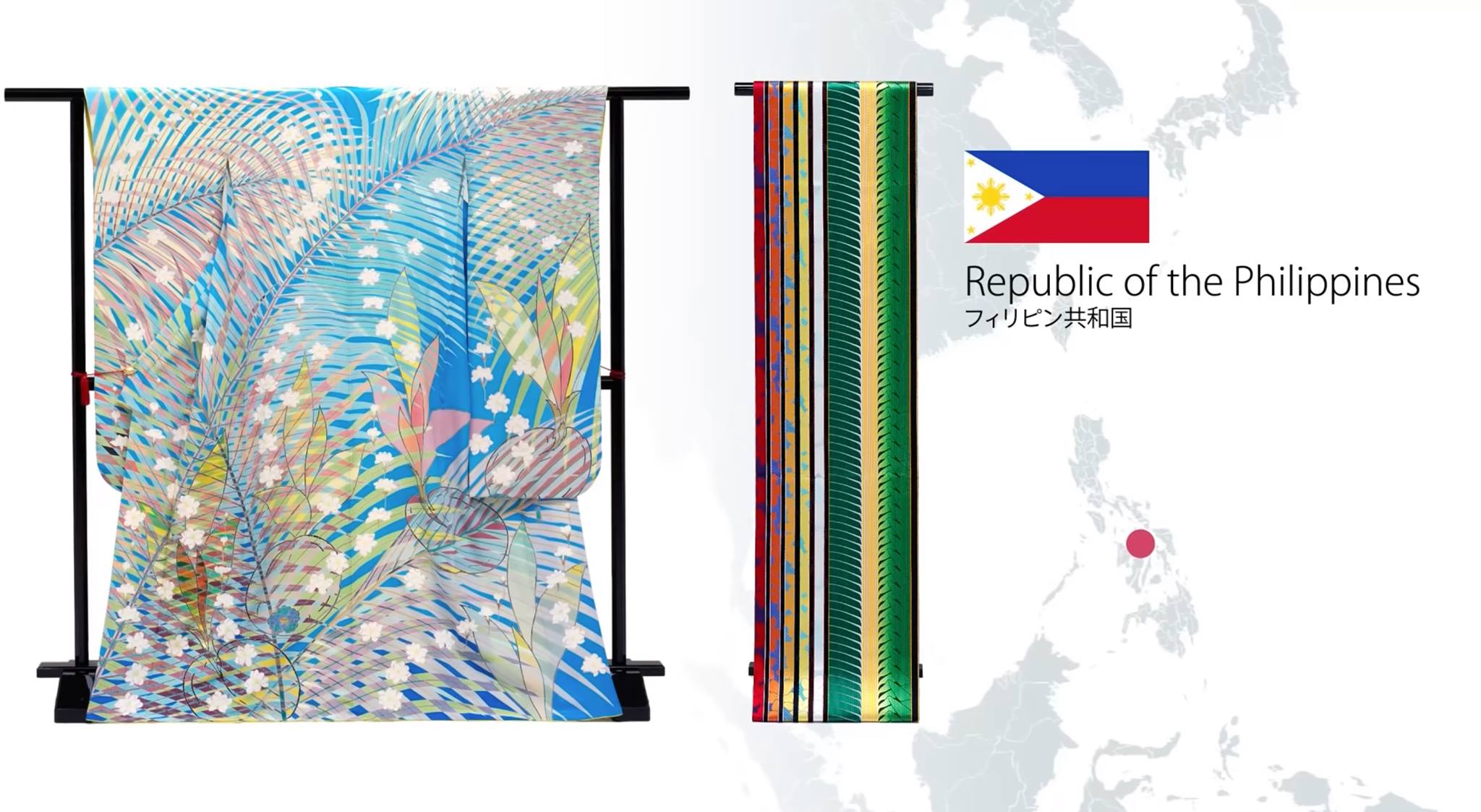
April 23, 2015, Koji Masuda, boss of Life Science Research Corp. (Seikatsu Kagaku Kenkyukai), MarinduqueLand Corporation’s importer and distributor of our Virgin Coconut Oil in Japan, sponsored a 4-day manufacturing plant and coconut farm tour for the twelve members of 21 Global Club (Coconut Meister) in the island of Marinduque.
One of the visitors who was introduced to me was Japan’s national treasure, a kimono designer and creator Hiroshi Nakamachi. Together with him were a young guy and a lady who were his family members and proteges who will carry on the kimono creation for future generations. According to Koji Masuda (who sponsored the Kimono Project for the Philippines), “The graying Nakamachi-san is one of the few masters left in Japan who can create a kimono from scratch. Both conceptualizing and weaving with his own seasoned hands to infuse a garment with the intended wearer’s personality.”
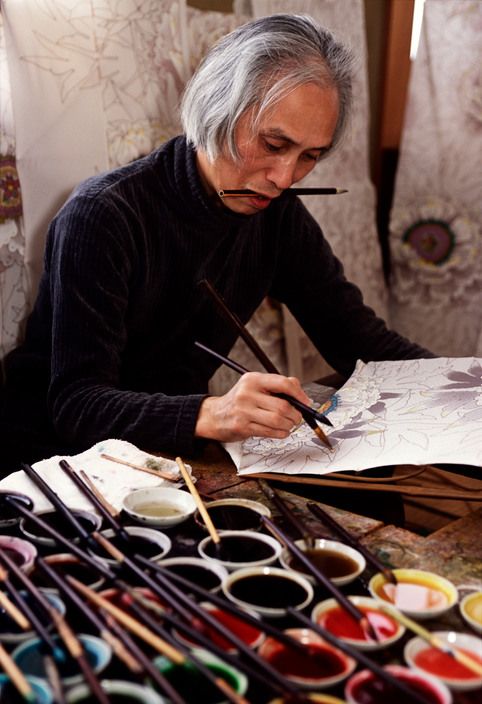
Kimono designer and creator, Hiroshi Nakamachi
At the opening of Olympic Games in Tokyo, the world saw 207 kimonos. They represent each country on earth. They represent the dream of one man who believes in his craft so dearly that he is willing to change the world to save it. They also represent artisans, craftspeople, designers and makers from every country in the world, breaking barriers and building bridges, using ancient techniques to create a future. The Project commissioned 207 kimono representing each of the countries participating in the Olympic Games. The project is led by Yoshimasa Takakura, a Japanese designer and project owner of the Tokyo-based Imagine One World, the “Kimono Project.”

Koji’s conceptualization of the coconut leaves and drupe was influenced by his love not only for this tree of life but likewise for his second home, the Philippines.
Coconut is an indispensable part of Filipino life. It can be eaten and drink and has many uses. There is a saying in the Philippines: “If you can count the stars in the sky, you can count the ways that coconut trees can help us.”

Nakamachi-san the designer of this Kimono, visited our island for inspiration. “The theme of this garment was drawn from the sound of the wind. He looked up at the palm forest and painted in Arabian Jasmine, inspired by the light of the sun and the sound of the wind blowing through the palm leaves . The band combines patterns of the leaves and sunlight on Jasmine flowers and the passage of time.”
The Obi on the other hand, connecting two patterns, such as the pattern that he saw when he cut a large palm leaf into two, and the pattern of the assembled palm that he saw behind the roof of the building. The Philippines was expressed by reflecting the sunlight on the flowers and designing the passage of time, according to Nakamachi-san whose motto is, “I draw only what I see with my own eyes and feel with my skin.” https://kimono.piow.jp/nation/033.html
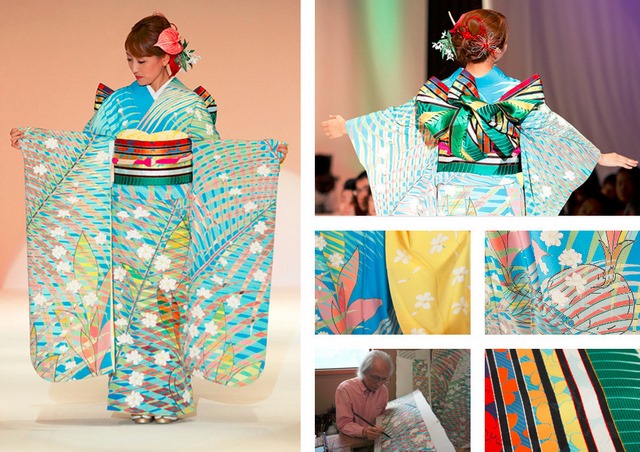
The production of each kimono is estimated to cost 2 million yen, and is covered by donations from crowd sourcing campaigns as well as corporate sponsorship. The Philippines’ kimono creation was sponsored by Life Science Research Corporation and 21 Global Club. The kimonos are now displayed online. https://www.piow.jp/
207 countries and regions around the world. Each one cherishes. Depecting the nature, culture and history that Japanese are proud of.
To my friend and brother Koji Masuda, Hiroshi Nakamachi, SKK, and the 21 Global Club, in behalf of the management and staff of MarinduqueLand Corporation, and the proud countrymen and Filipino athletes, Domo Arigato!!!
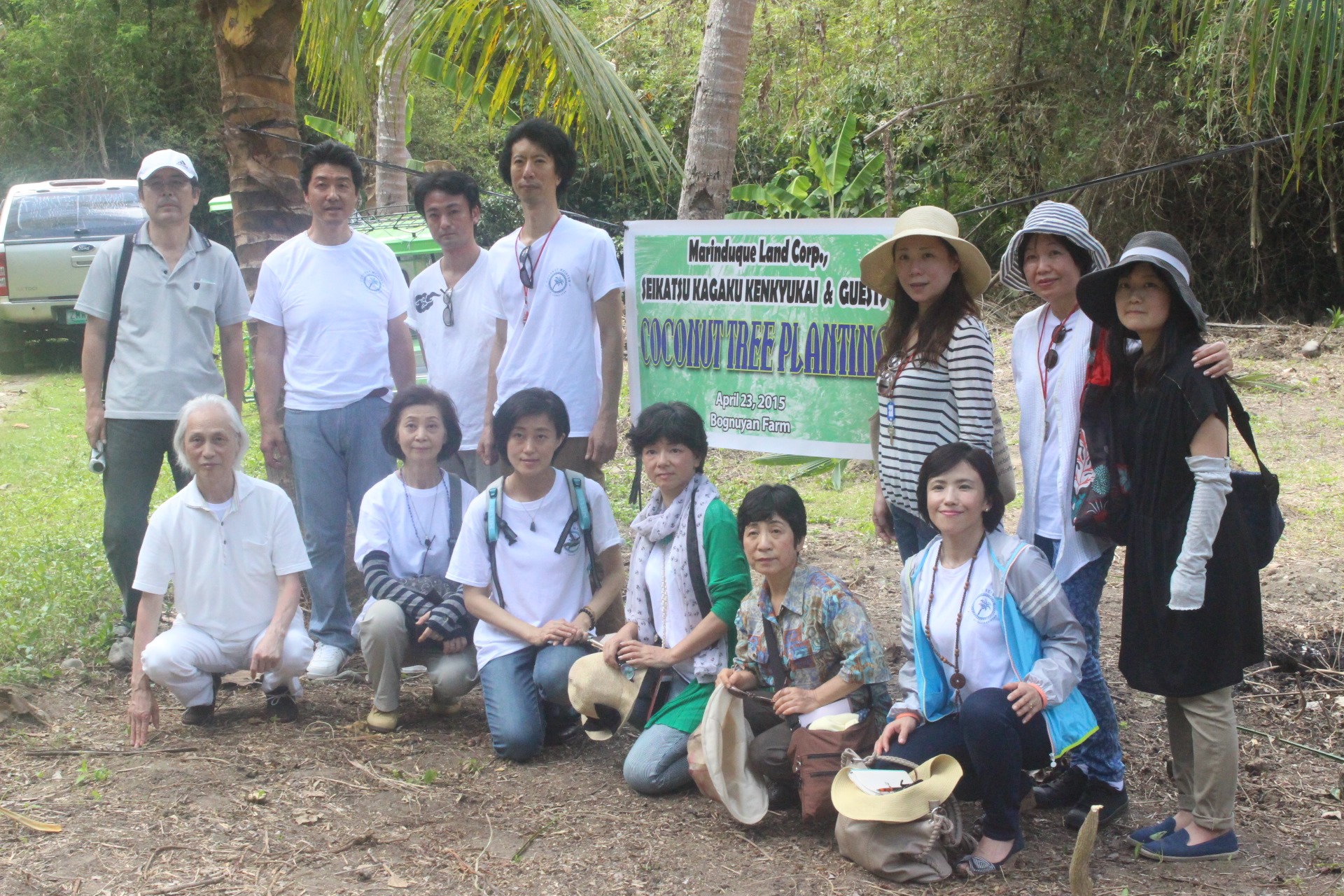
Koji Masuda (4th from left) and members of the 21 Global Club (Coconut Meister) during their coconut tree planting activities
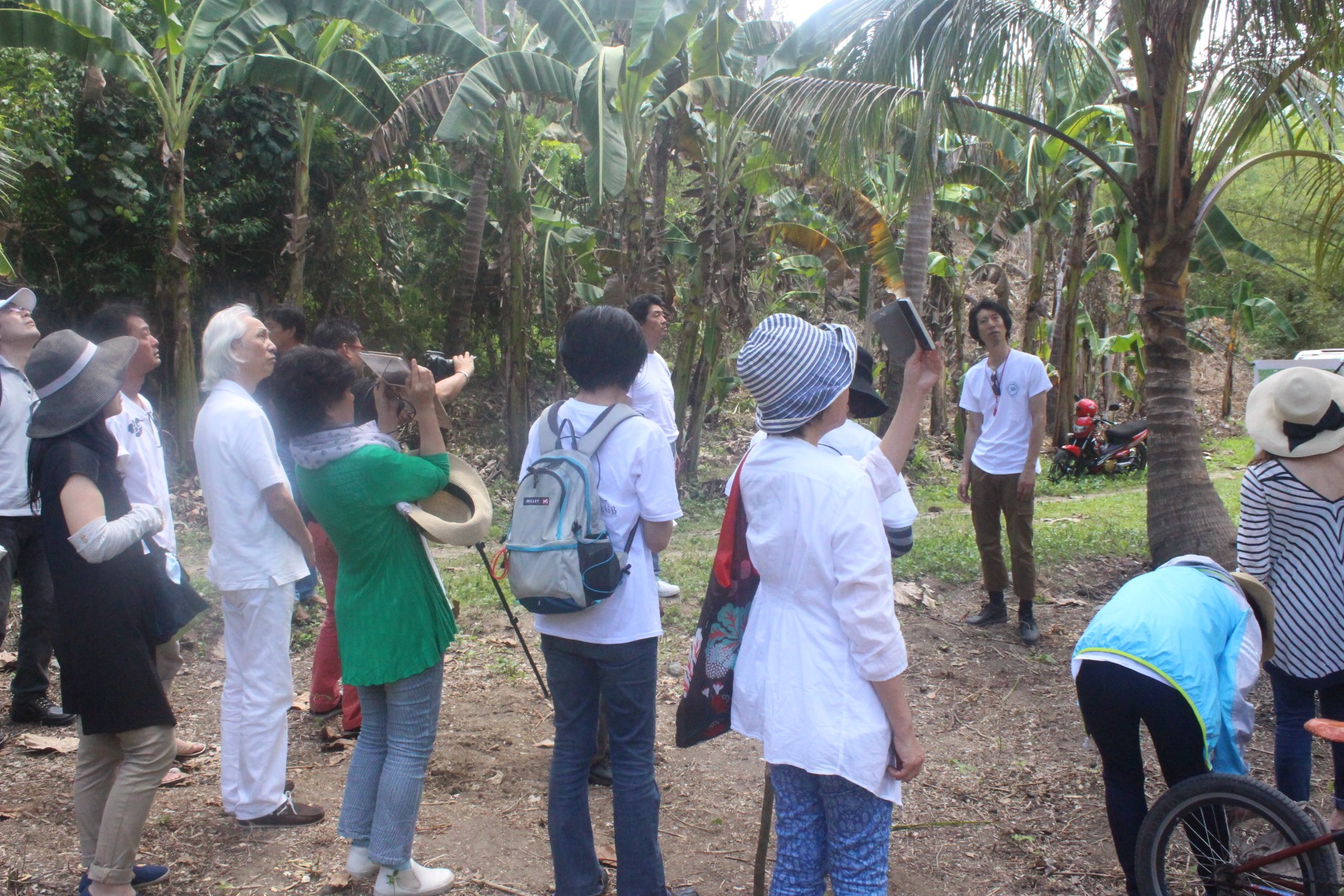
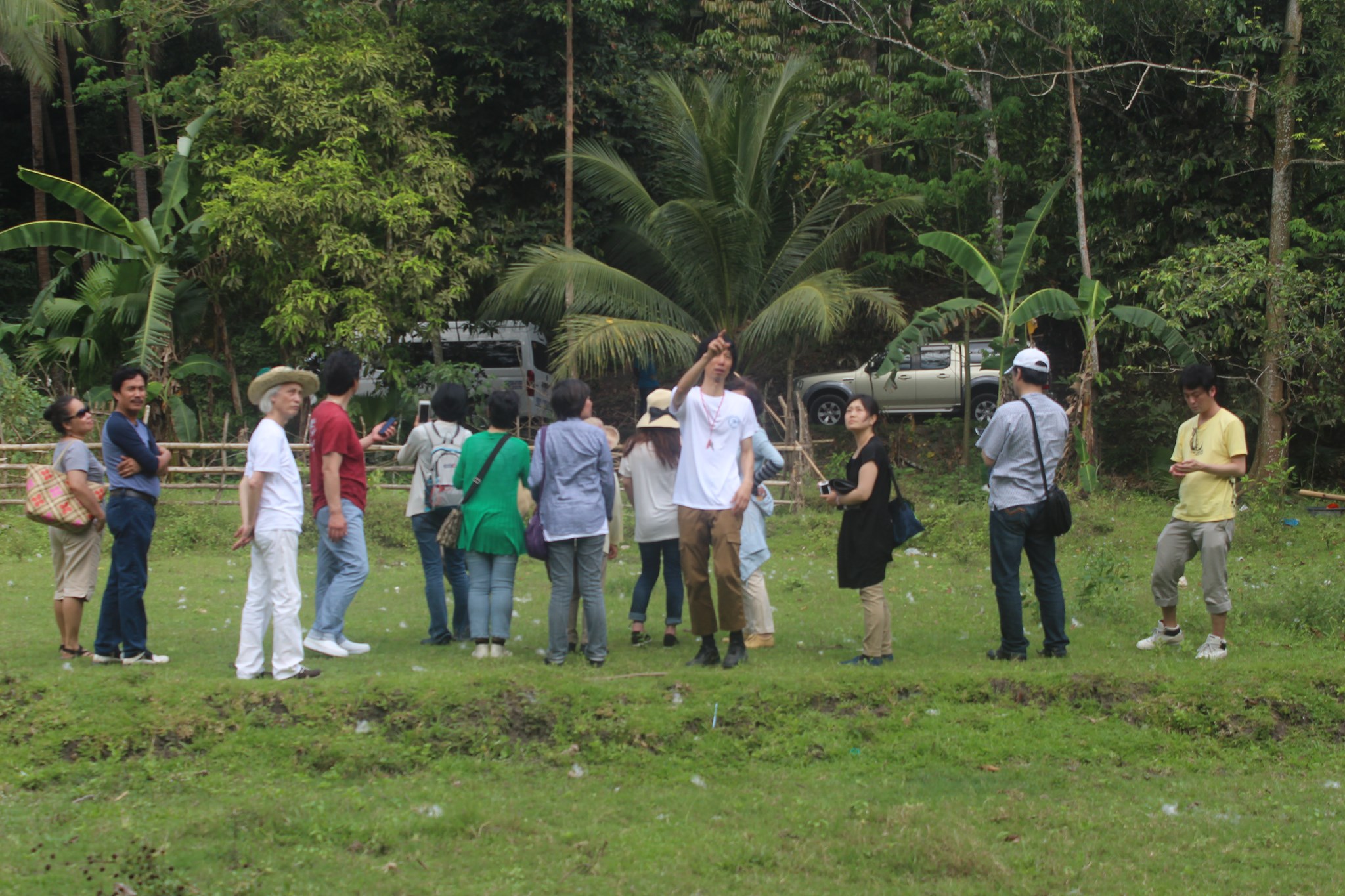


Nakamachi-san planting his tree of life.

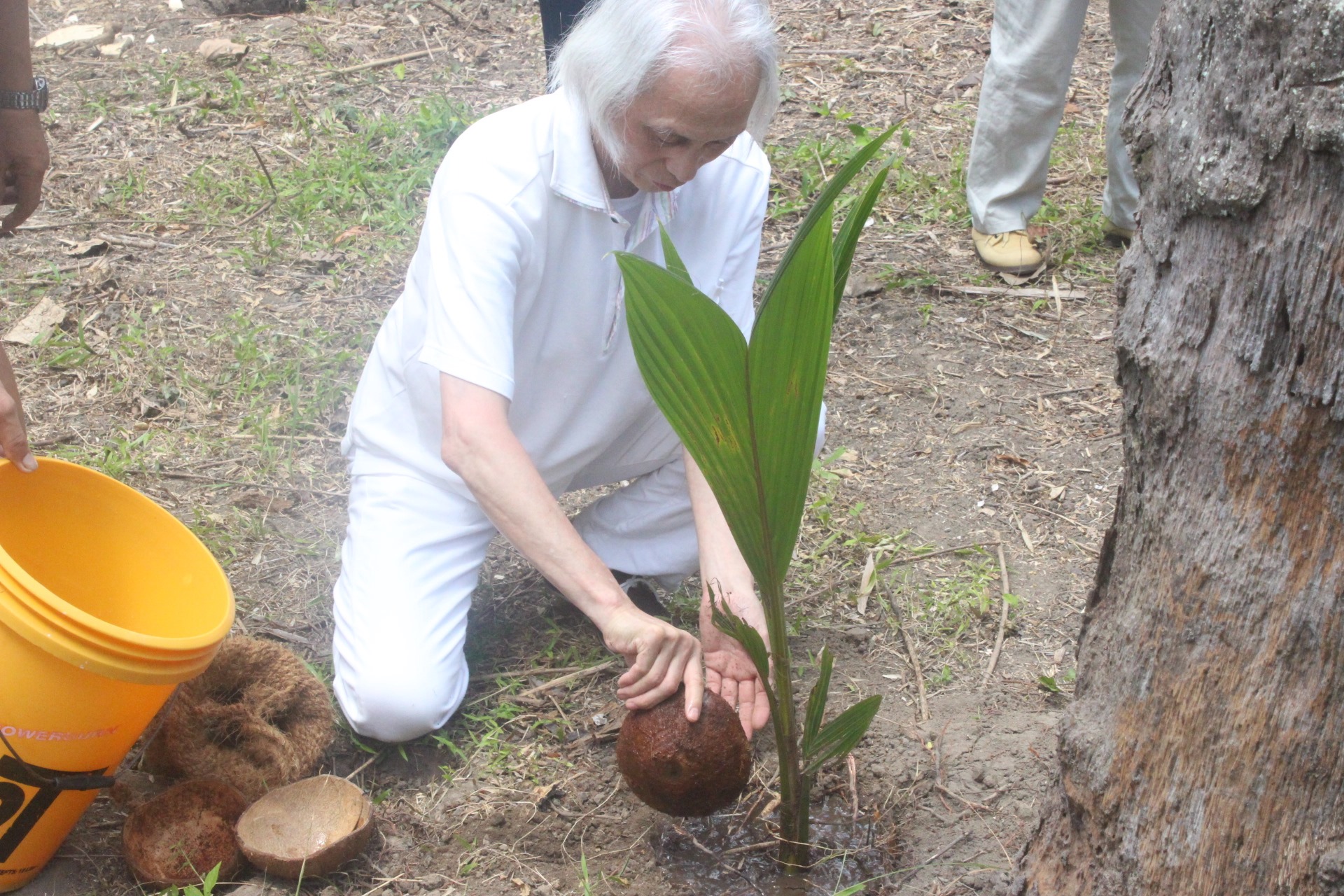
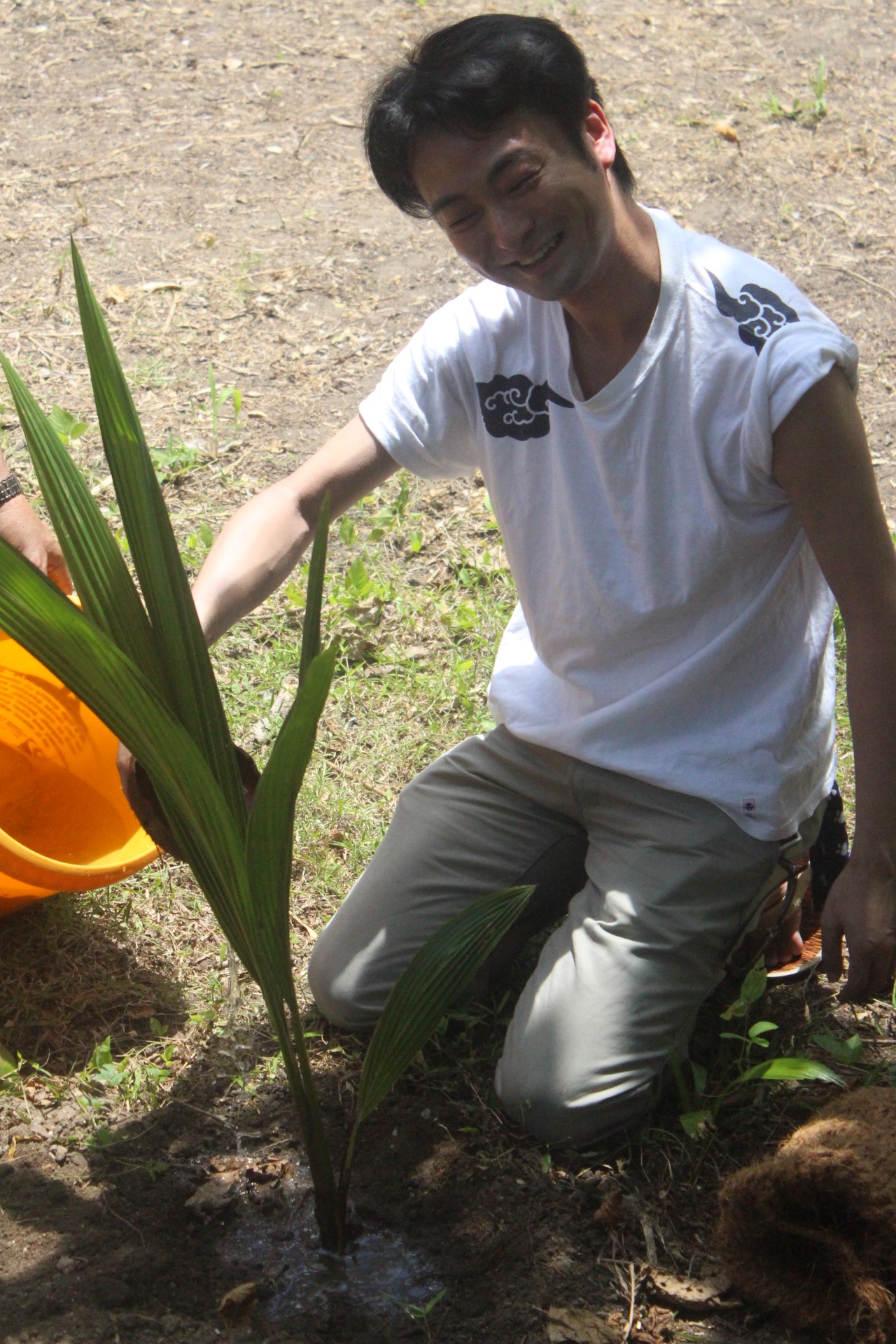
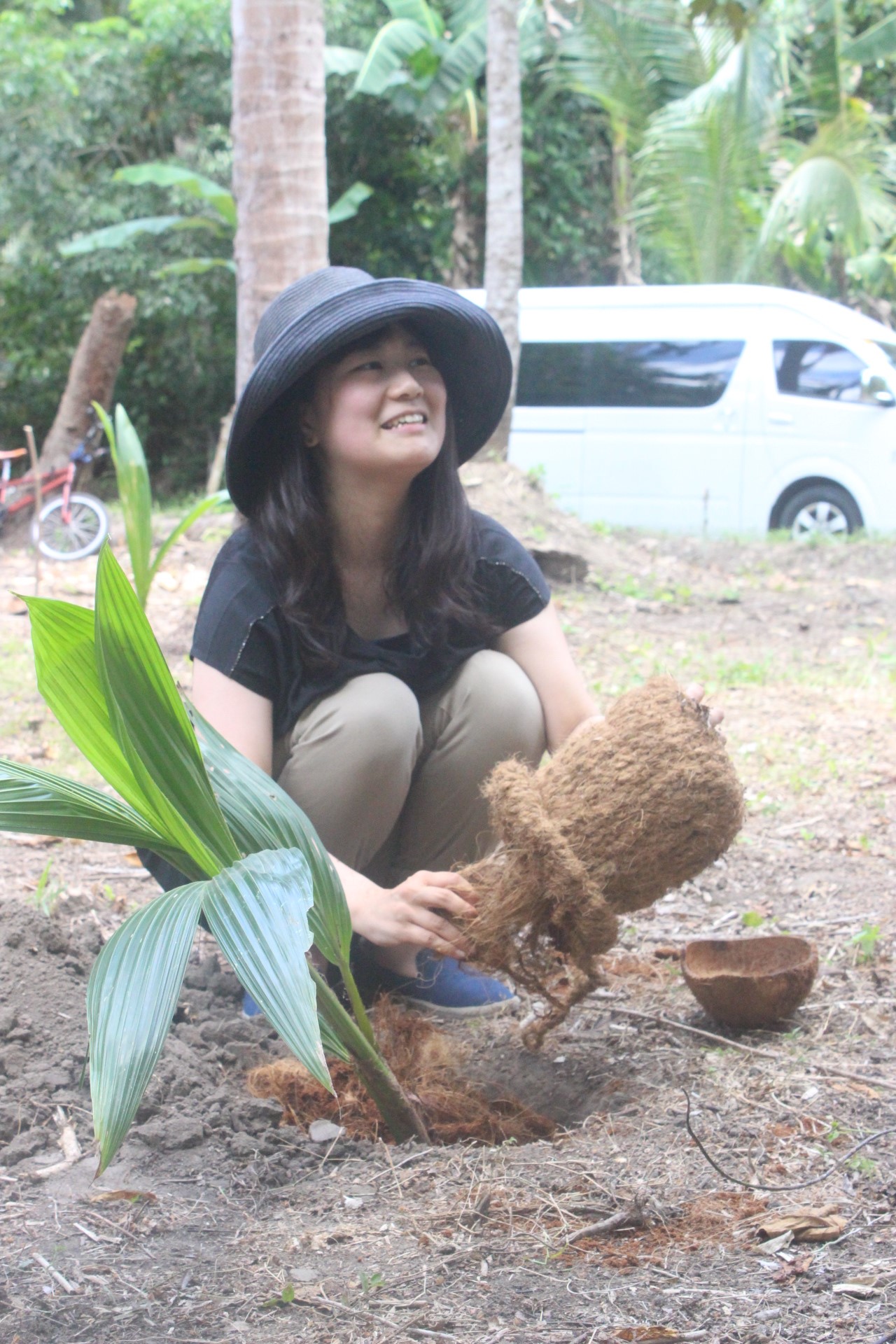
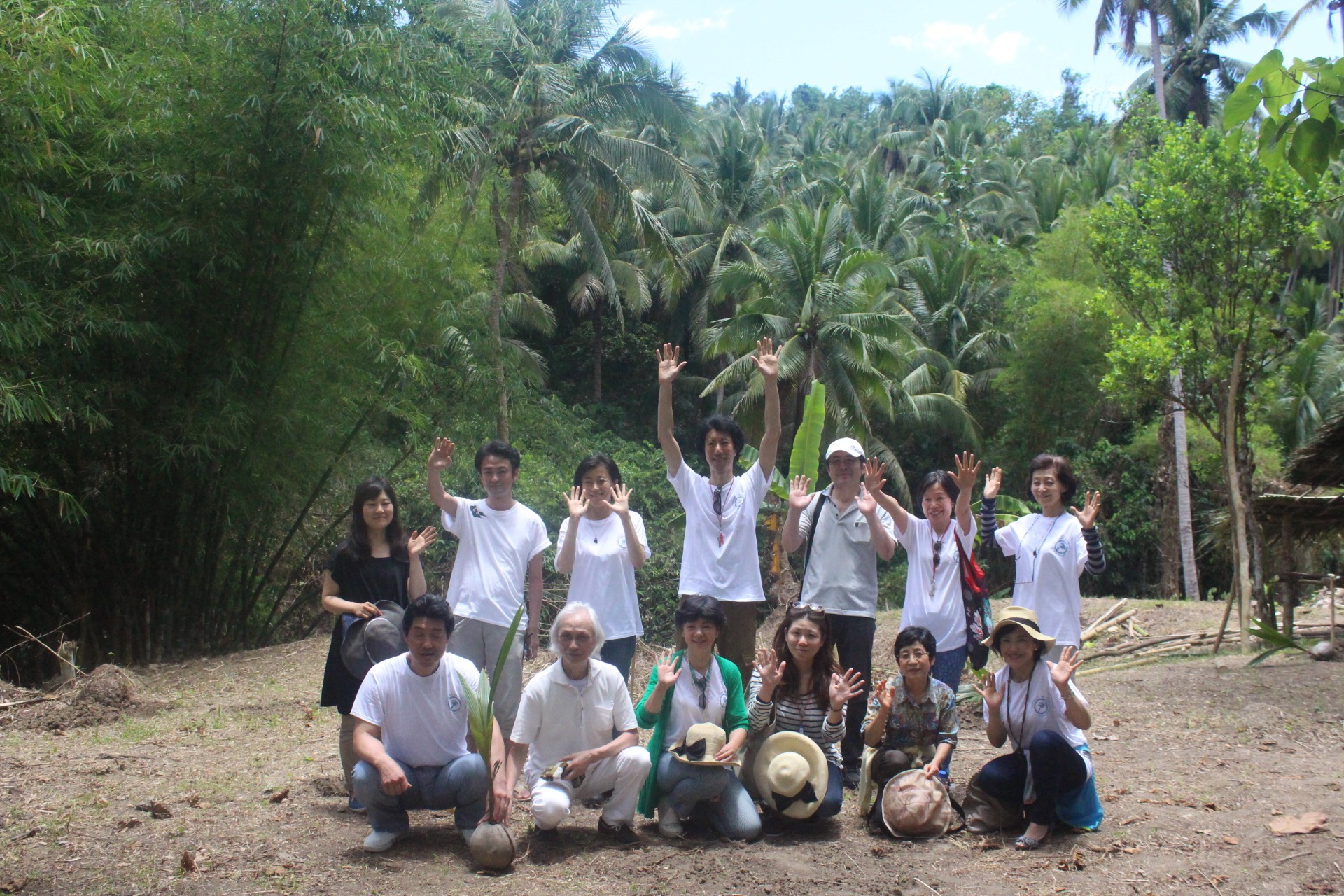
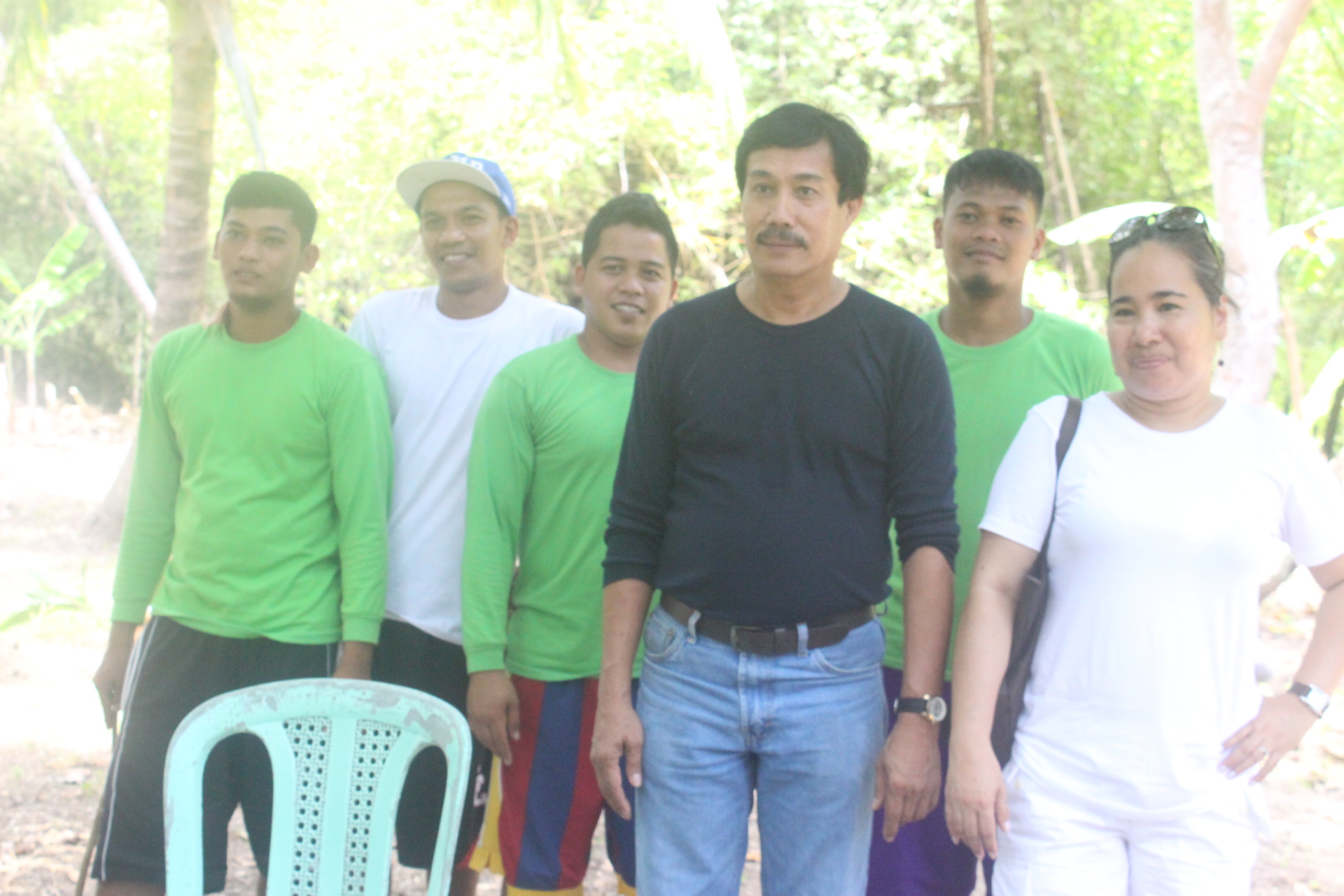
With SKK’s Philippine coordinator Luna Miranda and the MLC Barako boys.

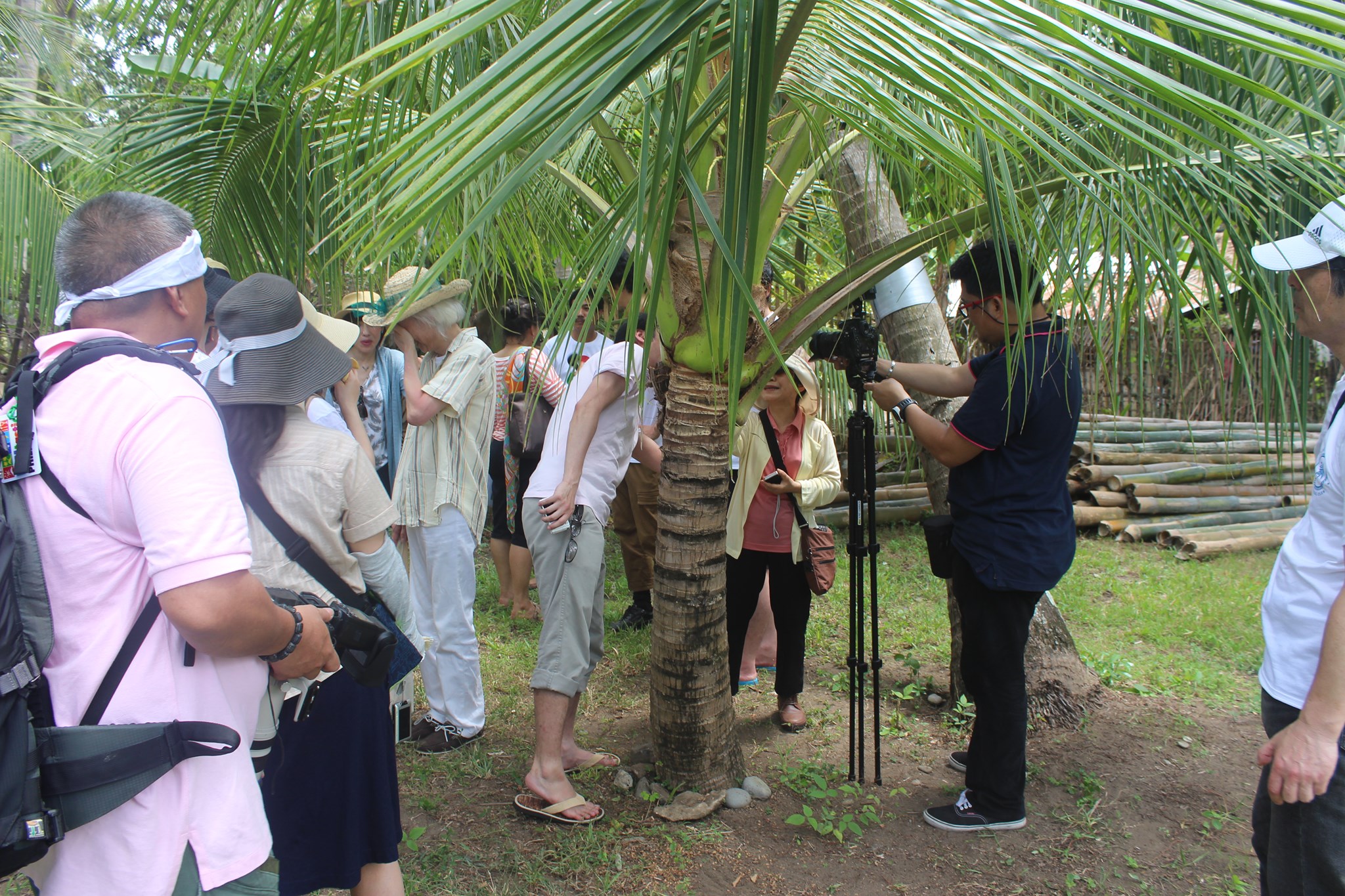

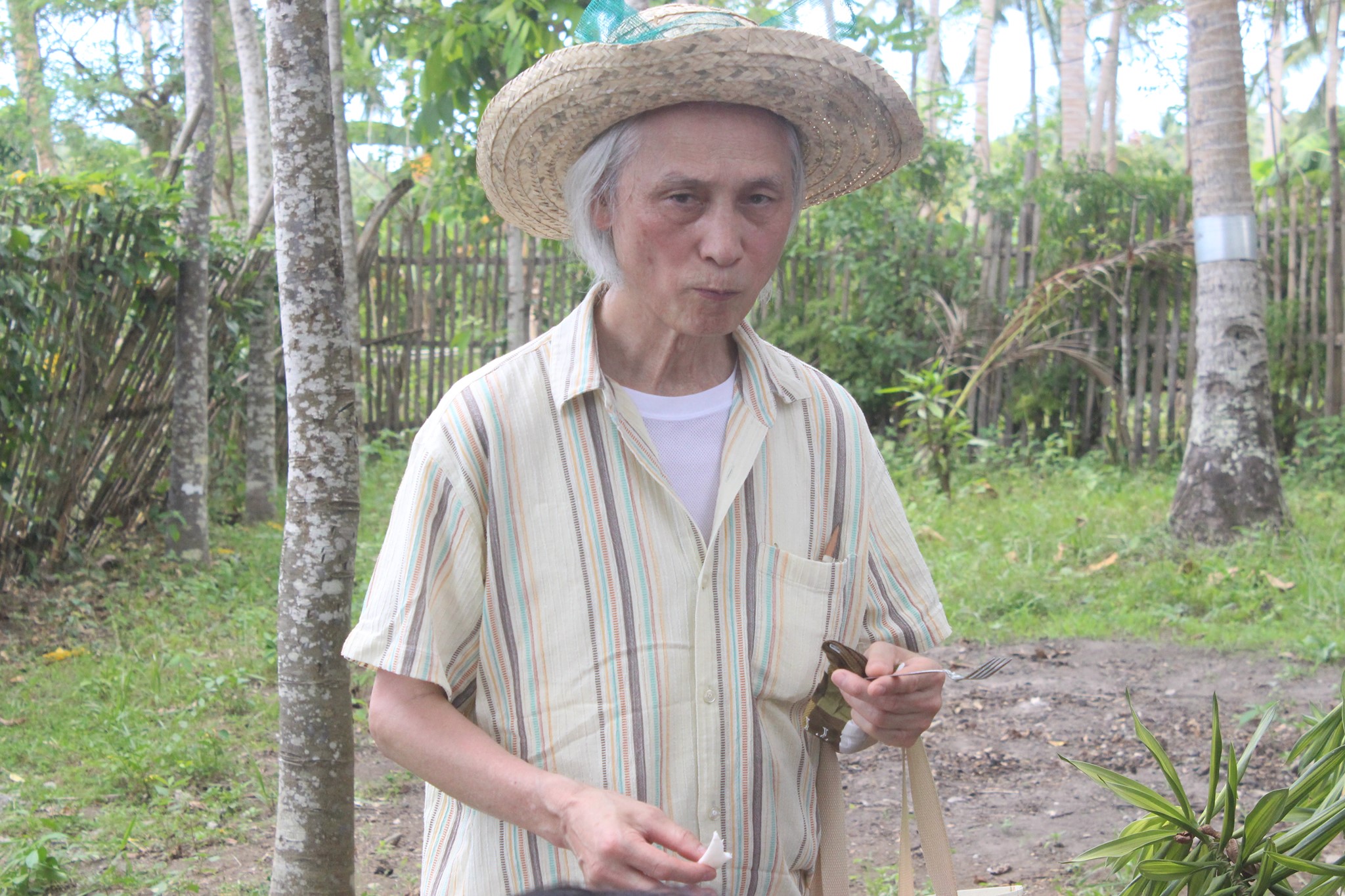


“Putong” (Crowning), Marinduqueños way of welcoming guests.
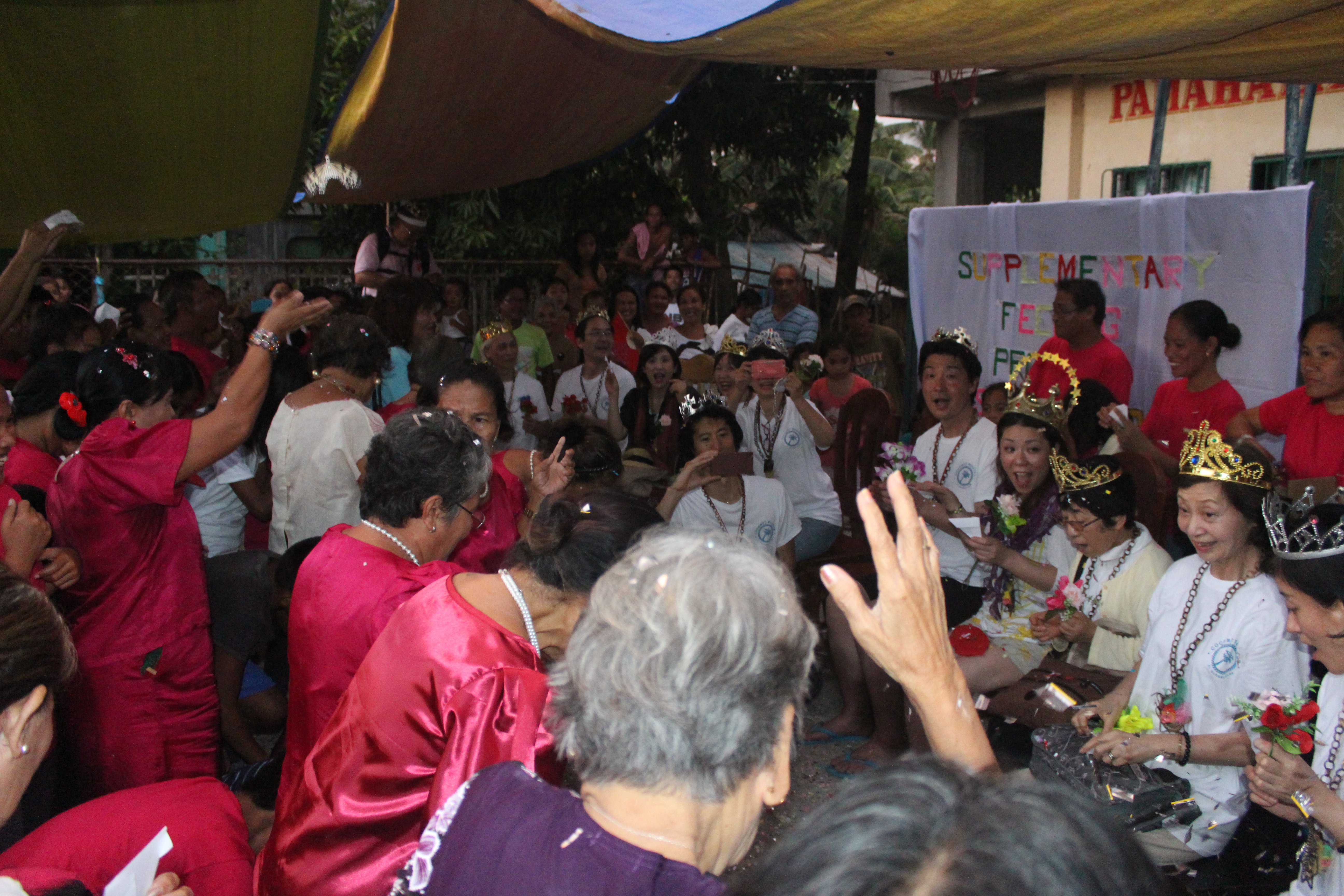
“Putong” (Crowning), Marinduqueños way of welcoming guests.

The pattern of the assembled palm that Nakamachi-san saw behind the roof of the building”

The coconut palms behind the roof becomes the official label of SKK’s VCO
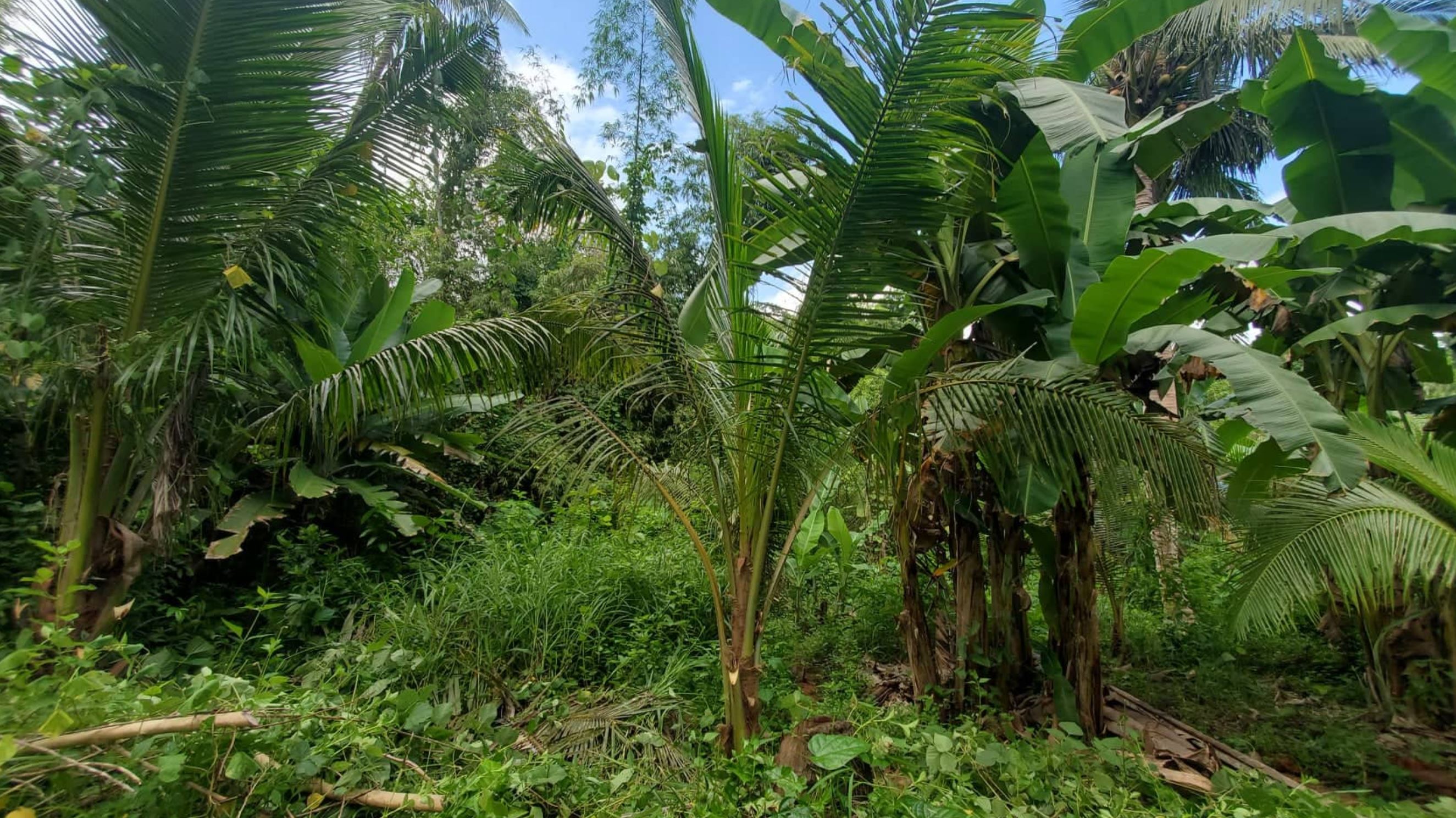
Coconut planted by Nakamachi-san, today
Through this, “The world can unite as one….”